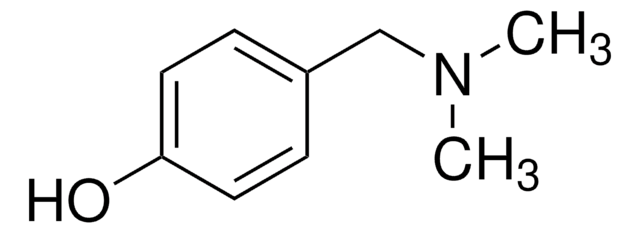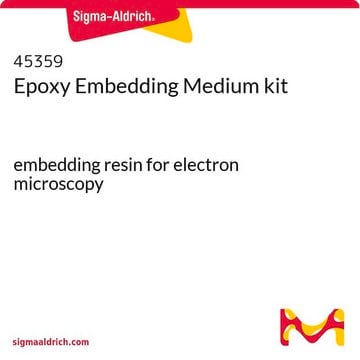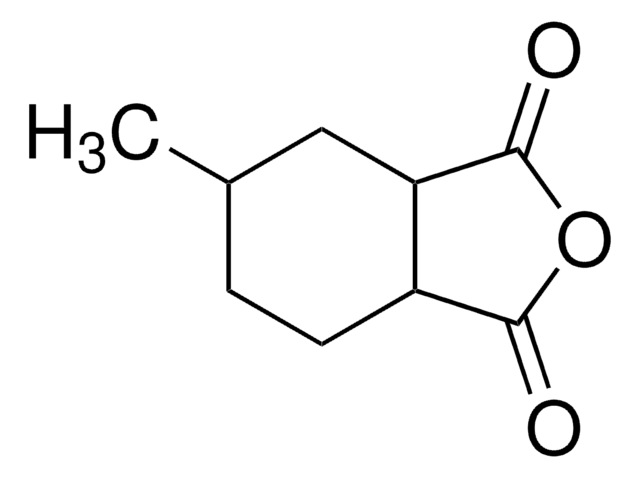T58203
2,4,6-Tris(dimethylaminomethyl)phenol
95%
Synonym(s):
DMP-30
About This Item
Recommended Products
vapor density
>1 (vs air)
Quality Level
vapor pressure
<0.01 mmHg ( 21 °C)
Assay
95%
refractive index
n20/D 1.516 (lit.)
bp
130-135 °C/1 mmHg (lit.)
density
0.969 g/mL at 25 °C (lit.)
SMILES string
CN(C)Cc1cc(CN(C)C)c(O)c(CN(C)C)c1
InChI
1S/C15H27N3O/c1-16(2)9-12-7-13(10-17(3)4)15(19)14(8-12)11-18(5)6/h7-8,19H,9-11H2,1-6H3
InChI key
AHDSRXYHVZECER-UHFFFAOYSA-N
Looking for similar products? Visit Product Comparison Guide
Related Categories
Application
- In the synthesis of water-soluble metal phthalocyanines bearing twelve dimethylamino groups.
- To prepare phenolate anion-based branched/cross-linked anion exchange membranes (AEMs).
- As a curing agent in the production of epoxy membranes.
Legal Information
Signal Word
Danger
Hazard Statements
Precautionary Statements
Hazard Classifications
Acute Tox. 4 Oral - Eye Dam. 1 - Skin Corr. 1B
Storage Class Code
8A - Combustible corrosive hazardous materials
WGK
WGK 1
Flash Point(F)
300.2 °F - closed cup
Flash Point(C)
149 °C - closed cup
Personal Protective Equipment
Choose from one of the most recent versions:
Already Own This Product?
Find documentation for the products that you have recently purchased in the Document Library.
Customers Also Viewed
Our team of scientists has experience in all areas of research including Life Science, Material Science, Chemical Synthesis, Chromatography, Analytical and many others.
Contact Technical Service













